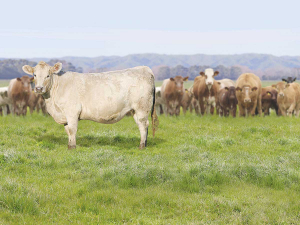Cleland named OSPRI chair
Southland farmer and director Tony Cleland has been named OSPRI New Zealand’s new chair.
 Beef + Lamb New Zealand say they are concerned about a recent exposure draft of the National Policy Statement for Indigenous Biodiversity.
Beef + Lamb New Zealand say they are concerned about a recent exposure draft of the National Policy Statement for Indigenous Biodiversity.
Beef + Lamb New Zealand (B+LNZ) says it is calling for the Government to improve it’s latest biodiversity reforms.
In an email sent out to farmers earlier this week, signed by B+LNZ chief executive Sam McIvor and B+LNZ chair Andrew Morrison, the organisation says the Government’s latest updates to the National Policy Statement for Indigenous Biodiversity (NPSIB) is of particular relevance to sheep and beef farmers.
This, the email claims, is because of the significant amount of native vegetation on sheep and beef farmers.
“B+LNZ, along with other primary sector groups, successfully convinced the Government to pause the initial biodiversity reforms in 2020,” the email reads, adding that farmers had significant concerns regarding the proposed rules, especially those relating to Significant Natural Areas (SNAs) and the potential restrictions on what farmers could do in those areas.
“We believe the latest release [of the NPSIB] is badly timed,” the email states.
B+LNZ says it has undertaken a preliminary analysis of the exposure draft and, the email claims, the organisation will be arguing for the Government to make improvements to the latest proposals and slow down a “deluge of environmental policy reforms”.
The analysis states that criteria for identifying SNAs remains broad and will capture significant areas of sheep and beef farms.
“We previously advocated for the definition to be narrowed to identify habitats that are threatened, at risk, or rare as SNAs,” the emails says.
It claims that if certain areas of land are classified as an SNA, it will restrict farmers’ ability to undertake new or modified activities within or in surrounding SNAS.
In the email, B+LNZ say they are undertaking more in-depth analysis of the exposure draft of the NPSIB released last week and will provide further advice on the implications of the regulations to farmers.
Global trade has been thrown into another bout of uncertainty following the overnight ruling by US Supreme Court, striking down President Donald Trump's decision to impose additional tariffs on trading partners.
Controls on the movement of fruit and vegetables in the Auckland suburb of Mt Roskill have been lifted.
Fonterra farmer shareholders and unit holders are in line for another payment in April.
Farmers are being encouraged to take a closer look at the refrigerants running inside their on-farm systems, as international and domestic pressure continues to build on high global warming potential (GWP) 400-series refrigerants.
As expected, Fonterra has lifted its 2025-26 forecast farmgate milk price mid-point to $9.50/kgMS.
Bovonic says a return on investment study has found its automated mastitis detection technology, QuadSense, is delivering financial, labour, and animal-health benefits on New Zealand dairy farms worth an estimated $29,547 per season.

OPINION: Here w go: the election date is set for November 7 and the politicians are out of the gate…
OPINION: ECan data was released a few days ago showing Canterbury farmers have made “giant strides on environmental performance”.